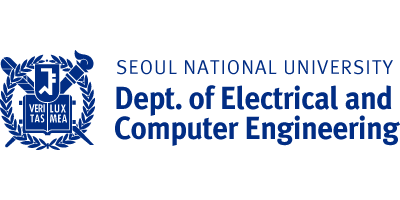Professor Hyun Kyo Jung, Introduction of energy blockchain technology in Seoul… Setting out to relieve the fine dust problem (Global Economy Times, 20180615)

SNU about to implement the first domestic campus micro grid based on blockchain
Energo Labs announced on the 15th that ‘Energy Blockchain’ technology, the application of blockchain to the energy industry, has advanced into Seoul.
Currently Korea is receiving attention for its blockchain technology and is suffering under severe fine dust pollution at the same time. Therefore some experts view the appearance of energy blockchain like ‘Energo Labs’ as a well-timed example.
Energo Labs, which has recently officialized its entrance to Korea, is aiming to establish a decentralized autonomous energy community operated by a mobile application that integrates micro grids, solar panels, smart meters, and clean energy trade systems. At present, De La Salle University (DLSU) in Manila is already operating a campus micro grid project, and another project sponsored by UN is scheduled at the end of this year.
In addition, it recently established a partnership with ENERNET, Korea’s major energy technology and Advanced Metering Infrastructure (AMI) company, and announced its actual progress into Korea. Until now, ENERNET has collaborated with the Korean government, the Korean energy supply company KEPCO (Korea Electric Power Corporation), and several domestic energy businesses. Heeyeoun Jeoun, CEO of ENERNET, explained, “With the research collaboration and exchange with the university and individual companies affiliated to SNU eco micro grid, we will work on a new energy blockchain model. Considering the recent emphasis on the use and management of apartment house energy along with the increasing fine dust, the application and substantiation of real time P2P technology between prosumers and consumers are desperately needed.”
Heeyeoun Jeoun announced its official position saying, “This technology should be adjusted to Korea’s reality and thus settled, accompanied by the technical improvement of currently developing products. ENERNET’s remote meter checking technology and Energo ’s blockchain P2P technology will be combined for a system allowing real time metering and P2P trade. ENERNET expects to lead the energy blockchain business in the global market by the strategic partnership with Energo.”
Alongside a search for various business projects in downtown Seoul, ENERNET and Energo Labs is collaborating with SNU and establishing a blockchain energy R&D center at the ‘SNU Smart Eco Micro grid Center’. Both companies plan to launch the development of the first blockchain-based campus micro grid to be introduced in Korea.
Hyun Kyo Jung, professor at SNU Electrical and Computer Engineering and President of Korea Electrical Engineering and Science Research Institute, said, “At Seoul National University, we are about to establish the first domestic campus microgrid based on block chain and an energy R&D center. Energy blockchain technology can relieve the various energy and air pollution problems Korea is facing at the moment. The university aims to use its campus resources and academic strength to accelerate the development of decentralized renewable energy.”
Meanwhile, companies such as ENERNET and Energo Labs are considering Korea’s carbon dioxide emission problems, embracement of innovative technology, and energy demand increase and are envisioning the opportunity to place Korea in a worldwide leading position in the decentralized clean energy industry.
The COO of Energo Labs KaiKai Yang commented, “Korea has the best environment for energy block chain systems. We are glad to carry out Energo’s solutions in Seoul together with ENERNET and SNU. We are positive that we will create the foundations on which Korea will ingeniously lead the world’s future with sustainable energy.”
Energo Labs is a company that utilizes blockchain to create innovations in the clean energy industry. It has accelerated energy innovation by combining blockchain decentralization and solar panels or energy storage related hardware. It is also laying down the foundation for the popularization of clean energy in the suburbs.
Source: http://ee.snu.ac.kr/community/news?bm=v&bbsidx=47520
Translated by: Jee Hyun Lee, English Editor of Department of Electrical and Computer Engineering


